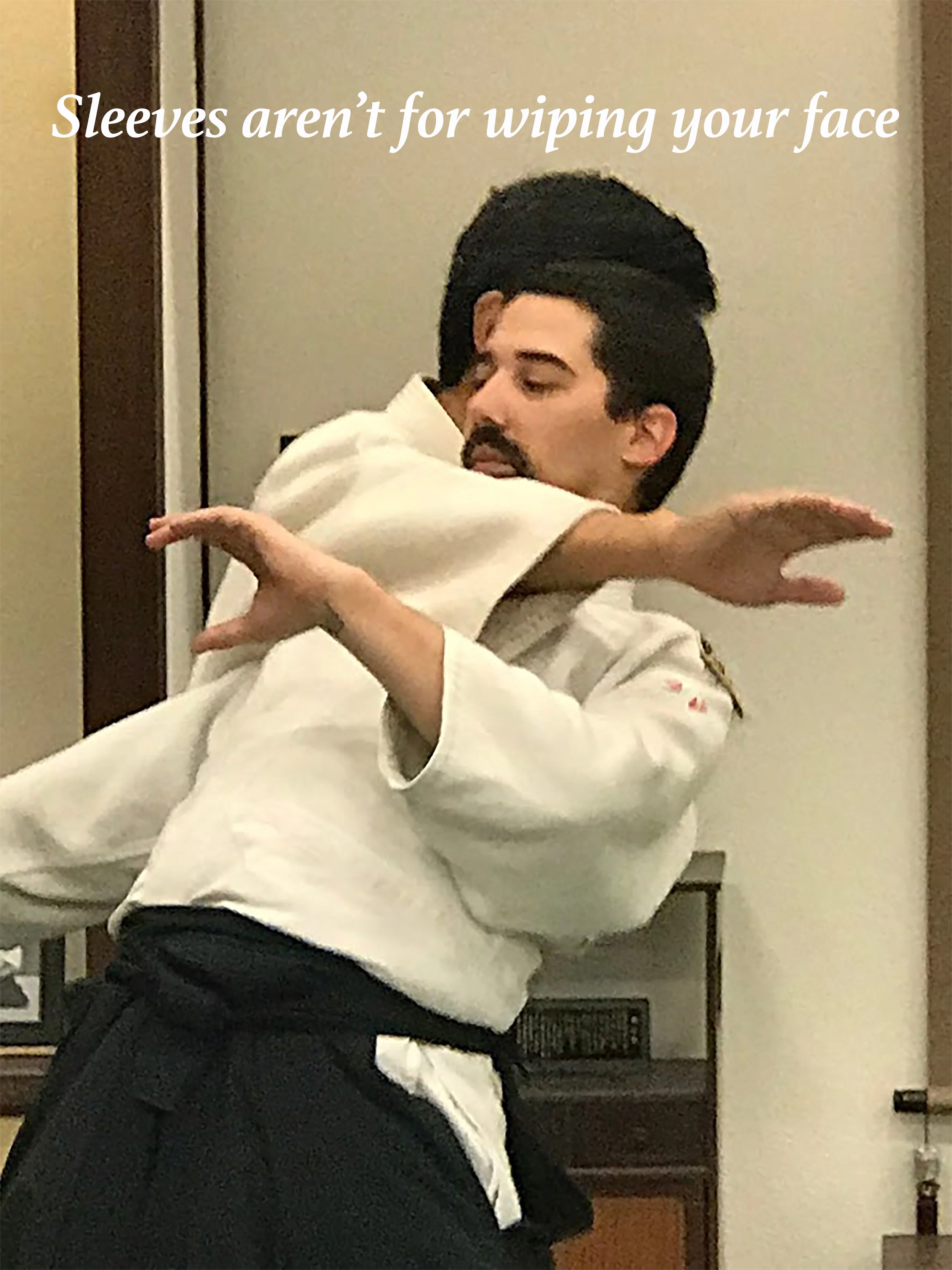Warriors must mind their sleeves. Once, when I was younger, my mother took me to a very formal Japanese inn. One of the things she and her friends marveled about was how well trained the server was by the way she deftly negotiated her kimono sleeve while serving us dinner. The sode or “sleeve” of our keiko-gi or uniform is a very important training tool. Incidentally, we should never use our sleeve to wipe our face - that is what a tenagui or “hand towel” is for. The hem of our keiko-gi sleeve or sodeshita should normally fall to the base of the wrist. Oftentimes, I see people roll up their sleeves or hem their sleeves mid way up their forearms. This is not bad or wrong per se, but it just shows a lack of sophistication in a Japanese etiquette sense. A samurai would normally wear their sleeves down and would only tie up their sleeves with a tasuki or “sash” when going into battle. Short or rolled up sleeves are more of a western custom that isn’t really done that much in Japan. One reason for sleeve length could be to hide our forearms because the development of our forearms speaks to our level of training. Obviously, a person who engages in the martial arts has more developed forearms. Another possible reason could be that the sleeve adds another impediment that the attacker would have to deal with when attacking. Without knowing the size of the forearm hidden under the sleeve, an attacker might misjudge their grab and give their victim the advantage. One more possible reason comes from swordsmanship. More experienced and higher ranking Iaidoists usually have kimonos with longer and wider sleeves. One reason for this is that it takes a higher level of skill to do the techniques while negotiating a longer sleeve. Our sleeves are not just the things which cover our arms or that we use to wipe our sweat upon. Our sleeves can demonstrate to others our level of training and martial arts ability. That is why good martial artists always mind their sleeves.
Today’s goal: The sleeve is a metaphor for how we do things. The best always take care of the smallest details.

